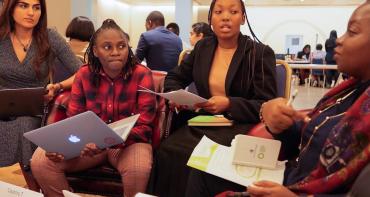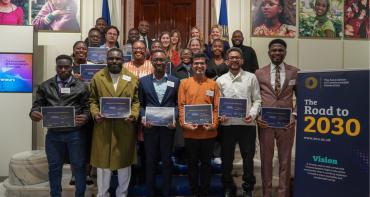Leading health officials are calling for urgent action to reduce the number of cancer cases in the Commonwealth, which are above global averages.

Leading health officials are calling for urgent action to reduce the number of cancer cases in the Commonwealth, which are above global averages.
Cancer rates in the Commonwealth have risen by 35 per cent over the past decade, including three of the most common forms: breast, cervical and prostate cancer.
This analysis was presented at a Commonwealth event as part of the first London Global Cancer Week. Attendees included officials from high commissions, academic institutions, health organisations and development agencies.
In 2018, around three million cancer cases were reported in the Commonwealth equivalent to one new case in every 10 seconds. Of those three million cases, about 1.7 million people died, equivalent to one death every 18 seconds.
The analysis predicts a further 35 per cent rise in the incidence of cancer by 2030.
Health officials have therefore urged governments to realign their health priorities to provide training and improve access to early detection and treatment of tumours.
Isaac Folorunso, a specialist in female cancer and former Nigerian Minister of Health, presented the Commonwealth’s collective action on cervical cancer.
“I want Commonwealth leaders to declare war on cervical cancer. It is almost 100 per cent preventable,” he said.
“The most efficient formula for cervical cancer prevention is a combination of two strategies: vaccination plus screen and treat.
“The prevention and defeat of cervical cancer is a challenge worthy of the Commonwealth and is well within its capabilities, as demonstrated by the collective global action on reducing persistent, high levels of maternal mortality, which has been a success.”
It is estimated that without a collective action; cervical cancer deaths will rise by 62 per cent by 2030 causing one death every three minutes in the Commonwealth.
The analysis highlights the ‘worrying’ impact of cancer on productivity. In 2015, cancer accounted for more than 200 million work delays worldwide of people missing work due to medical appointments.
“Cancer is not just a health issue but it is also a development issue,” said Deputy Secretary-General Arjoon Suddhoo at the event.
He added: “We are working on developing a Commonwealth price-sharing and information-sharing database for essential medicines such as the HPV vaccine.
“The database will help member countries improve citizens’ access to prevention approaches and negotiate fair prices for the human papillomavirus (HPV) vaccine, which helps protect teenage girls against cervical cancer.”
The analysis identifies tobacco, excessive alcohol consumption, poor diet, lack of exercise and obesity as the five major cancer risk factors. Prevention of these factors, the report shows, could reduce cancer incidences.
“It is all about the political will,” said Princess Dina Mired of Jordan, who is the President of the Union for International Cancer Control. “If leaders decide to focus on health. It will bring hope.
“We see it actually happening in Rwanda which has provided universal health coverage to 90 per cent of its citizens and that too by public funding.”
The analysis also reveals that a longer duration of ultraviolet rays has increased cancer incidences and the indirect effect of climate change has disrupted the delivery of health services, particularly in small island states.
Officials recommended people to carry out regular screenings to help detect early signs of the diseases which they said, “raises the chances of survival”.



